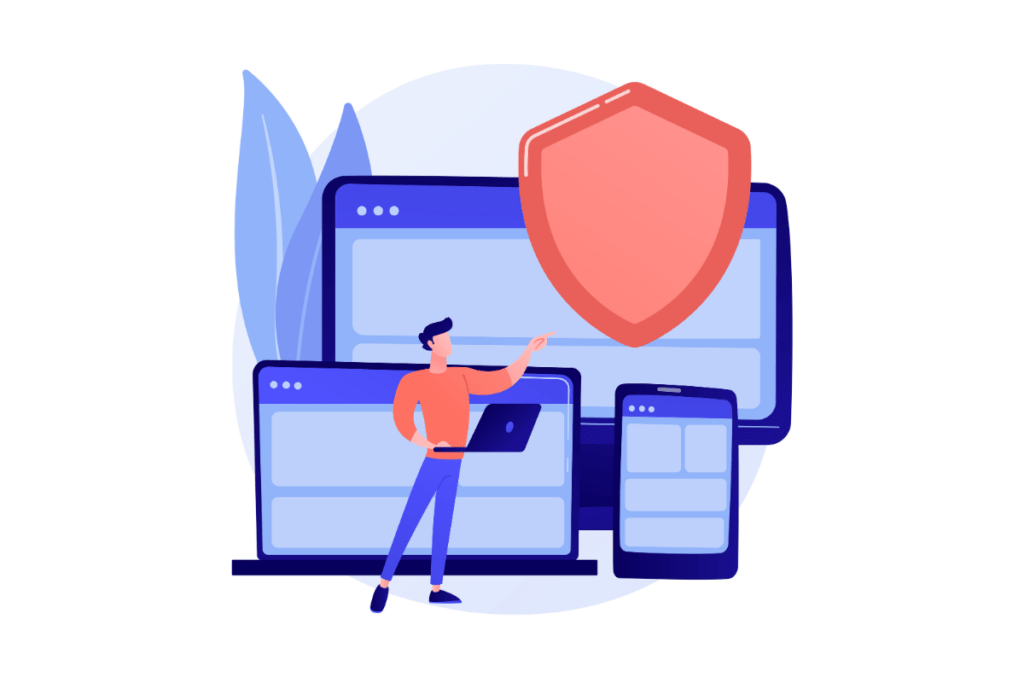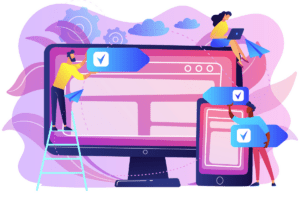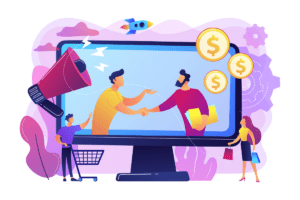Generating leads means collecting personal and professional information, like email addresses, job titles, and company names. But with that data comes responsibility. If you’re not taking data security seriously, you’re not just putting your reputation at risk, you could also be facing major legal consequences. In this article, we’ll break down why data security in lead generation matters, the key privacy laws to know, compliant strategies you can use, and how to keep your lead data safe after it’s collected.
Why Data Security Matters in Lead Generation
We all know that lead generation is essential for B2B companies. However, gathering information through forms, cookies, email campaigns, and third-party tools can open up the door to data security risks. If that data is misused, overshared, or collected without transparency, it can damage your brand, reduce conversions, and even lead to regulatory penalties. Safe lead generation ensures that you’re building a pipeline of prospects who feel confident in your brand from day one.
Privacy Laws B2B Companies Must Follow
Even if your business isn’t based in a highly regulated region, you likely engage with leads who are. Understanding the laws that govern data collection helps ensure your lead gen efforts remain both compliant and ethical. Here are some of the key privacy laws that you’ll want to be aware of.
General Data Protection Regulation (GDPR)
The GDPR applies to any company processing personal data of EU residents, regardless of where the company is located. Under GDPR, businesses must obtain clear and informed consent before collecting any personal data. This means pre-checked boxes or bundled consent for multiple uses are no longer allowed. You must also provide users with the right to access, correct, delete, or transfer their data. For example, if a lead fills out a form on your website, they should be able to request a copy of their data or ask that it be deleted from your database. Make sure to update your privacy policy and data collection forms to reflect these rights, and train your team on how to respond to data subject access requests.
California Consumer Privacy Act (CCPA)
The CCPA gives California residents the right to know what personal data is being collected, why it’s being collected, and who it’s shared with. They can also request that a company delete their information or refrain from selling it. To comply with CCPA, your website should include a clear privacy notice, a Do Not Sell My Info link, and mechanisms for users to make data requests. Even if you’re not based in California, you must comply if you meet revenue thresholds or collect data from a significant number of California residents.
Canada’s Personal Information Protection and Electronic Documents Act (PIPEDA)
If you’re generating leads in Canada, PIPEDA requires that you collect data for purposes that a reasonable person would consider appropriate. Consent must be meaningful, and businesses must protect personal information with appropriate security measures. It’s essential to disclose that tracking is happening and provide an easy opt-out method. In some cases, implied consent is acceptable, but it must be documented and justified.
Compliant Lead Generation Strategies
You don’t need to compromise on lead quality to stay compliant. The following lead gen strategies prioritize safety and trust.
Website Visitor Identification
Tools like Visitor Queue use IP address intelligence to identify the companies visiting your site without relying on cookies or collecting personal details. This business-level data offers strong lead insight while avoiding intrusive tracking. Additionally, the employee contact information that we provide is gathered from multiple publicly available sources, meaning it can be found online with some digging. Make sure you include disclosures in your privacy policy, and give users a way to opt out. This keeps your process both effective and respectful. Try Visitor Queue for free today.
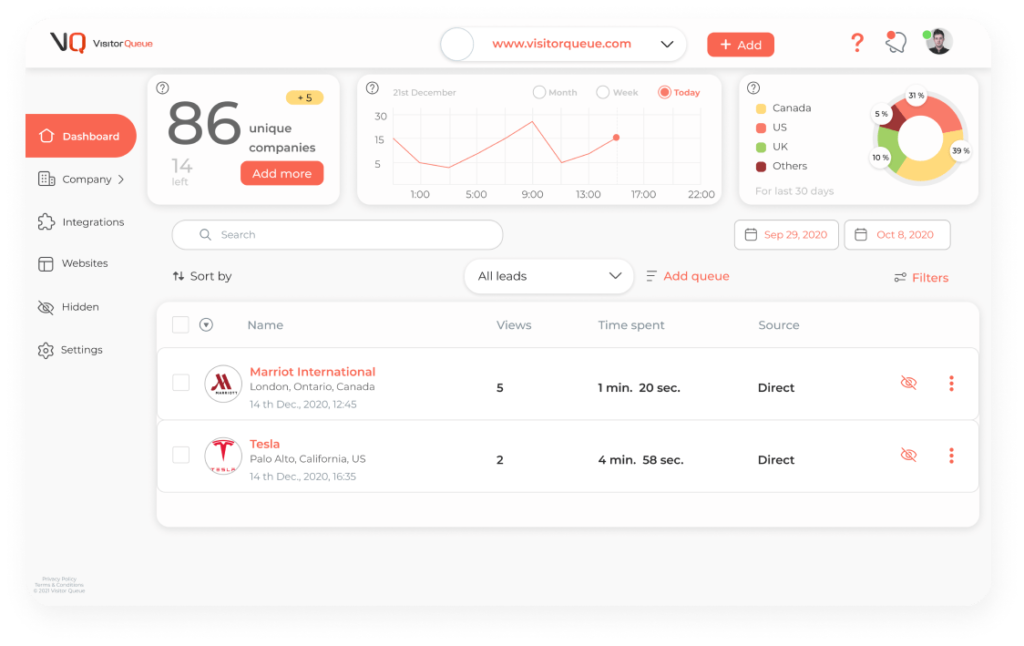
Gated Content
Offering gated content like whitepapers, eBooks, or templates in exchange for contact information remains an effective lead generation strategy. To stay compliant, be clear about what users are signing up for. If filling out a form adds them to a newsletter, that should be disclosed upfront. Include a link to your privacy policy and an unchecked opt-in box for marketing communications. Not only does this ensure legal compliance, but it also results in higher-quality leads who genuinely want to hear from you.
Webinars
Hosting webinars are a great way to engage with your target audience while collecting data in a compliant way. When attendees register, clearly explain what information you’re collecting and how it will be used. Use double opt-ins for email follow-ups to ensure consent. You can also use a tool like Zoom or Microsoft Teams that integrates with your CRM to manage registrations securely. Always ensure that event data is stored on secure servers and only accessed by authorized personnel.
Intent-Based Retargeting
Intent-based platforms like Bombora or 6sense collect business behavior signals rather than personal data. These platforms help you identify companies that are actively researching your industry, allowing you to target ads without violating data privacy laws. Ensure your retargeting strategies comply with applicable cookie consent laws. Use a cookie banner that allows users to choose what types of tracking they’re comfortable with. Below is an example of the 6sense dashboard.
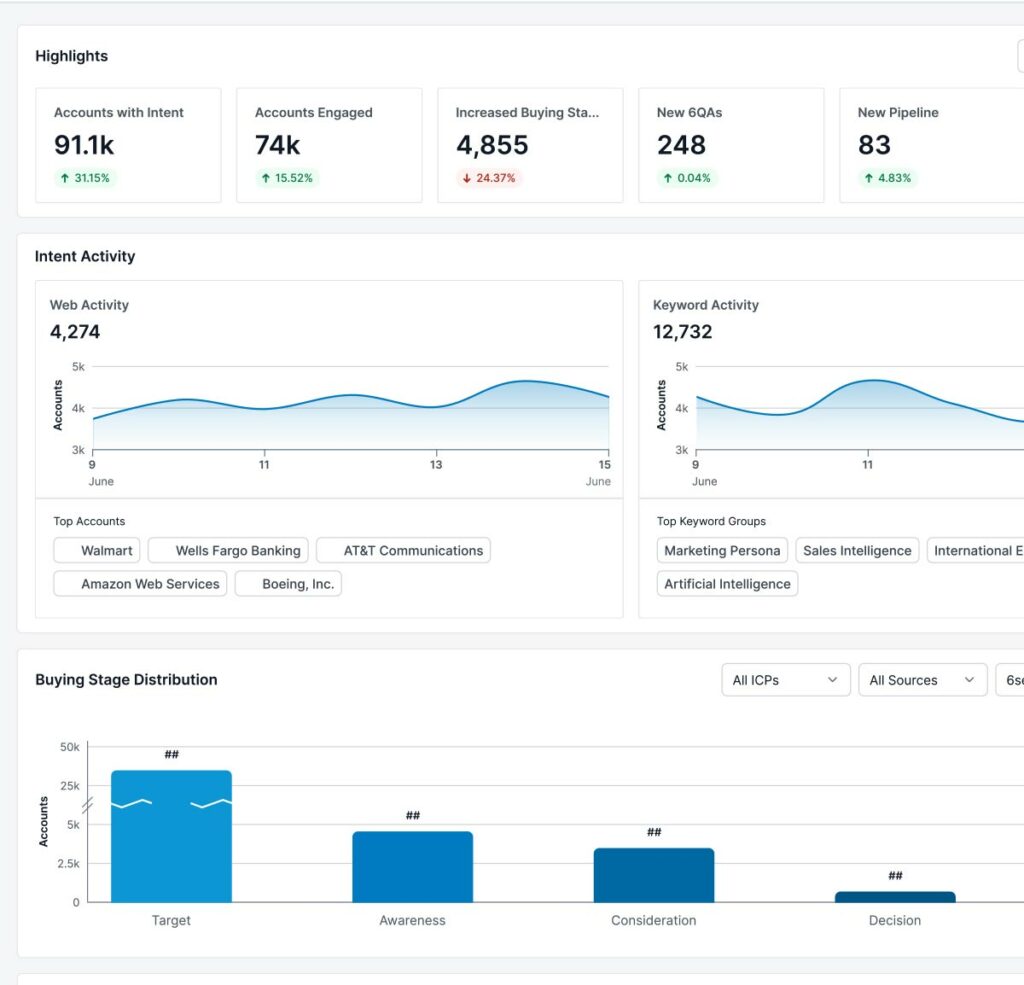
How to Secure Lead Data After Collection
Once you’ve generated leads, protecting their data is a top priority. Data security doesn’t end at generation, it must extend to the storage, usage, and deletion.
Using a Secure CRM
Start by using a secure CRM system like HubSpot, Salesforce, or Zoho, and ensure access is restricted based on employee roles. Multi-factor authentication should be mandatory for anyone accessing lead data, especially if they’re working remotely. Conduct regular audits to monitor for unusual activity, unapproved access, or outdated permissions.
Backup Your Data Regularly
Encrypt your data both in transit and at rest. This means that when a lead submits a form on your site, their data gets transferred securely with HTTPS and stored in an encrypted database. Even if your system does have a breach, encryption makes the data unusable to unauthorized users. Backup your data regularly and store it in secure, offsite locations. In the event of ransomware or data corruption, having access to recent backups can save you from losing valuable information.
Employee Training
Employee training is another vital layer of defense. Social engineering and phishing attacks are among the most common ways data breaches occur. Train your team to recognize suspicious emails, avoid public Wi-Fi when handling sensitive information, and follow strong password protocols. Additionally, if your team is asked to remove a lead from a list, ensure they know how to properly do so.
Third Party Security
Finally, create and enforce a data retention policy. Don’t hold onto lead data indefinitely. Once a lead has gone cold and there’s no longer a legitimate reason to keep their information, delete it securely. Automating this process within your CRM ensures nothing slips through the cracks.
What’s Next?
Data security in lead generation is not just the responsibility of your IT team. Your marketing, sales, and customer support teams also need to know how to ensure your customer information is secure. Understanding and adhering to privacy laws, using compliant lead generation tactics, and implementing airtight security practices will position your business as trustworthy and professional. As always, if you have any questions about using Visitor Queue to securely and efficiently generate leads, do not hesitate to reach out.
 Identify
Identify Personalize
Personalize Benchmark
Benchmark Agencies
Agencies Integrations
Integrations Case Studies
Case Studies Use Cases
Use Cases Blog
Blog Resources
Resources